Which digital marketing course should you choose?
One of the most common questions asked of OMCP is “Which Digital Marketing Courses are right for me?” For this special series OMCP interviewed the leaders of seven digital marketing course providers to learn the differences. We start with the most recent to earn OMCP approval, Boot Camp Digital.
Allison Chaney, the chief digital training officer at Boot Camp Digital, and Krista Neher, CEO of Boot Camp Digital were kind enough to sit with us and share what the industry can expect from their company and training courses; now and in the future.
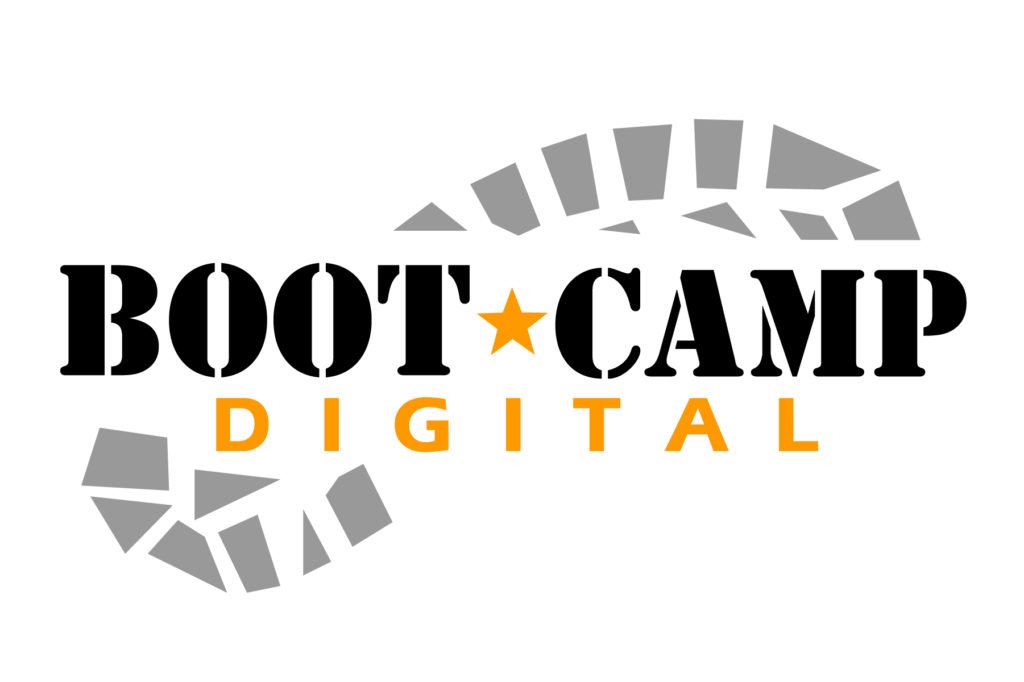
Michael:
All right. Welcome back to the OMCP studios, and with us today is Allison Chaney, the chief digital training officer at Boot Camp Digital, and Krista Neher, CEO of Boot Camp Digital. Allison and Krista are at the forefront of digital marketing training, delivering keynotes around the globe.
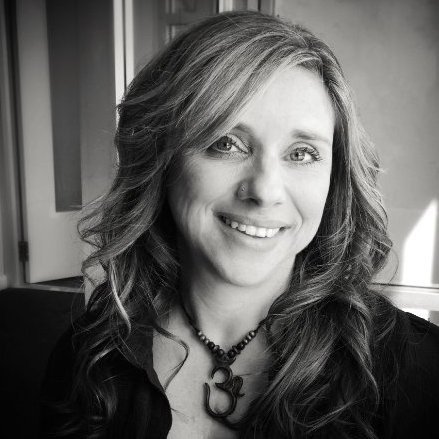
I’m your host Michael Stebbins, and today we’ll be discussing digital marketing training, specifically that from Boot Camp Digital, to help our audience understand how to choose a digital marketing training course specifically.
Allison and Krista, welcome.
Allison & Krista:
Thank you.
Thanks for having us.
What got you into digital marketing training?
Michael:
As founders, what drove you to get into the business of education and training?
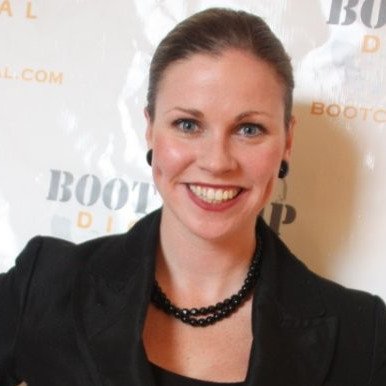
Krista:
Yeah, so that’s a great question, and I would say I came into it a little bit by accident, and then a little bit more on purpose. I started my business about 12 years ago just as social media was really taking off. What I found was that a lot of people, whether they were doing it themselves or hiring an agency, just didn’t understand enough to really get results. And so I became really interested in trying to help them learn how to use the tools themselves to get better results, whether they were a decision maker, an evaluator, or an implementer.
And so, I actually ran my first training class about 10 years ago, and I remember thinking, “Oh no, I wonder if people will show up.” Sure enough, it sold out. Since then, I’ve gotten even more focused on helping businesses and individuals to figure out how do they use these tools smartly to get better results faster? And so that’s really what inspires me is helping, whether it’s an implementer, or a business owner, or a decision maker in a large organization, helping them to make smarter decisions with their budgets. Because you just see so much waste, and so many executions that don’t even meet basic best practices, and it breaks my heart. I want to help people do a better job with this stuff, so they see the results.
Michael:
When people are taking the courses, you’re passionate, you want to see them make the most use of their tools and their decisions, how would you measure the success of people who are going through the Boot Camp Digital courses and programs?
How do you measure training success?
Krista:
I mean for me, the success always comes down to results. Are there actionable things that you can and will do that are going to improve your business? Because I think knowledge… If you think about adult education and adult learners, right? Knowledge is a small part of the ultimate issue, right? You have to know the stuff, but then implementing it consistently is the trick part. And so to me, our true success is always measured by results.
Someone sending me an email saying, “Wow, I took what you said about content, and we’re seeing 10 times the reach on our social media posts.” That’s the stuff that I live for, because knowing is half the battle. Using it to grow a business, that’s the hard part, and that’s what I think the ultimate success measurement is.
Who is the ideal candidate for your courses?
Michael:
You cover social media, you cover SEO, you cover digital analytics, you cover digital advertising, you cover the spectrum of digital marketing in the course, and you mention tools too. Give us an idea of the ideal candidate who would come in and take the courses that you’re offering.
Krista:
When I think about who our ideal candidates for our training, really we think about people who want to drive impact. One big thing about us is we’re not going to give you these little, short-term hacks and tricks that work for three weeks, and then an algorithm update erases them. We focus on sustainable impact, sustainable strategies, kind of like the meat and potatoes that gets you 90% of your results.
Our courses are really design to be good for a pretty large range of audience. One of the things we did when we designed our online training was we wanted to design them for the jobs that people had instead of around a topic. Let me tell you what I mean by that. If you think about Facebook marketing, a lot of Facebook marketing courses may be set up as beginner, intermediate, or advanced. But what we realized after doing training for the first five years or so, was that actually it’s not so much beginner, intermediate, or advanced, it’s there’s different types of jobs that need different sorts of information.
- Digital foundations level
- Strategy level
- Implementation & mastery levels
We have a digital foundation section, for example in our Facebook course, we have Facebook foundations, which is aimed at somebody who wants to understand basically how Facebook works for a business, where it’s at now, what to look forward to. Then we have the next level, which is our strategy level. This is for, let’s say, a brand manager, someone who’s not going to get their hands dirty, they don’t need to know literally how to set up a Facebook page, but they need to understand how to evaluate a strategy, they need to understand how to look at results, and they need to know some best practices. We see the strategy level as sort of the decision-maker level, but not quite getting your hands dirty.
And then, our 300 and 400 levels are really focused on implementation, so then we get into how do you set this stuff up with best practices, and then our mastery levels, the really advanced tops and tricks, and things that take you to the next level. Because of that, when we look at who our training can help, it’s really people with those different needs for different types of jobs, from implementation to maybe more strategic level, and they can choose the training content that best meets their need across all of our different topics.
B2B, Consumer, or Small Business?
Michael:
Krista, do you have a leaning towards enterprise B2B , mid-size, or small business?
Krista:
Sure, so one of the questions I get all the time in trainings of any sort when it’s a broad audience is people say, “Oh, but what about B2B?” Or, “How does that apply to healthcare?” Or, “What about small businesses?” Really, the tools are all the same in terms of how you apply them. We find we have everyone from small businesses, meaning maybe it’s the business owner where this is 50% of their job, all the way up to we’ve done training programs for some of the best known brands in the world.
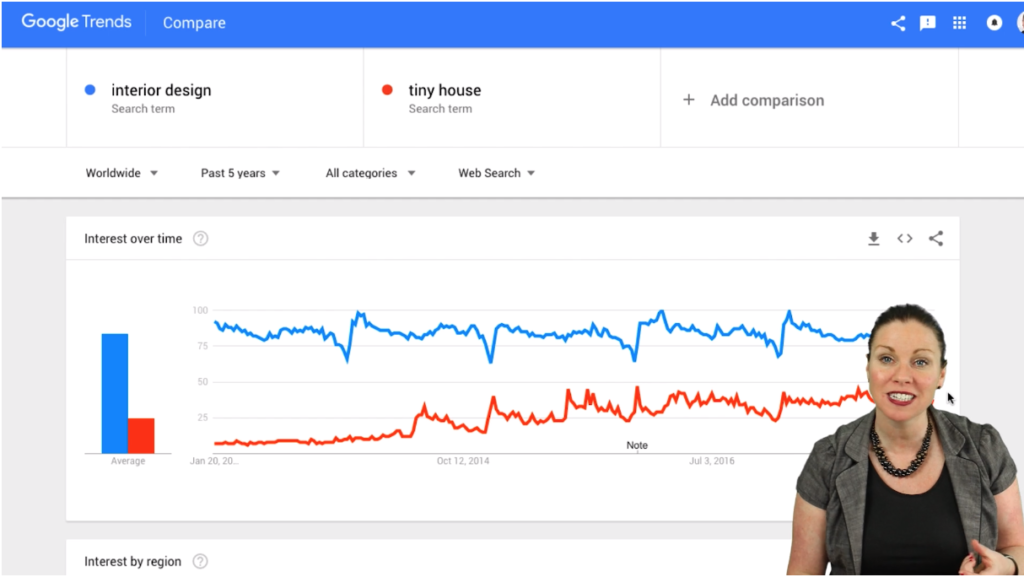
We really are able to cover a range, and I think it’s because we focus on digital marketing, and we focus on training. And so the tools and how they work are quite similar. It’s just being used a little differently. I think of it a little bit as okay, you’re making a chair versus a table, but you’re going to use wood, you need to measure the wood, you need a hammer, you need to know how to use a level. I actually chose a terrible analogy, because I don’t know how to build furniture. But you get the idea.
Michael:
I think a lot of the audience is just finding out that your courses were evaluated and approved by OMCP, so congratulations for that. We just really enjoyed the evaluation and seeing some of the innovative things that you’re doing. We noticed, you know just for example, a tremendous amount of content. I think there was almost, or over, eight hours on just Facebook alone. And we saw a tremendous number of downloads and checklists. What else will participants find in your course that they’re unlikely to find somewhere else?
What’s unique about Boot Camp Digital courses?
- Live weekly Q&A
- One-on-one coaching
- Downloads and checklists
- Private users’ group
Allison:
Yeah, and this is actually one of my favorite things about the course, because to answer your question, it’s the one-on-one coaching with an expert. So many of these courses online are just sort of one sided, you know, you’re watching a video, or you’re downloading things, or whatever it is. But it’s that extra bit that we offer where you can actually get on a phone with Krista or I, or an expert in something specific that you need, usually it’s Krista or myself, and ask us those questions.
That value is just so hard to find anywhere else, and that’s one of the reasons I love these courses so much. Because if you’ve taken any kind of course, if you’ve done any kind of learning in your life, you’ve probably got to a point where you’re like, “Oh, but I just had this question.” Or, “I have this thing.” Or, “I want to talk this out. I want to see if I really get it or I understand it.” Usually the answer is you just have to figure it out yourself.
This extra level of what we offer I think really helps to round out the training, and really helps you to take it to the next level, because learning can only go so far, and then you really do need that expert to say, “Yeah, you’ve got it.” Or, “Let’s think about this differently.” Or, “Let’s dig a little deeper.” And we can help point people in the right direction of more training, or help give them assignments or homework to help really practice a skill set.
Sometimes it’s just asking a question, and getting validation, so they can go back to their manager, or their boss, or their CEO and say, “Hey listen, I got back up from an expert. We need to do X, Y, Z, and this is why.” To have that back up, that’s one of the things we hear all the time. People come back to us after a one-on-one and say, “Oh my gosh, I got this project approved. We can finally get better results. We can finally hire a new person to help me.” Or whatever that is, so that one-on-one coaching is really valuable as part of our training package.
Michael:
It’s great to have a sounding board, and Allison, what is the mechanism? If I am a student going through the program, or a participant and I really want a sounding board for a process I’m about to do. Do I use a forum? How do I raise my hand?
Allison:
In our trainings, you would simply schedule something with a coach. We have a calendar, and you would schedule something with one of us, and we would talk that through together. We also have, for people that go through our training courses, we also have a Facebook group, it’s the Digital Marketing Insiders Group. It’s just for our participants in our courses, and they can kind of bounce ideas off of each other, they can answer questions. We have a weekly Q&A call that we do, for example, where we can answer questions for everyone live. There are a lot of different ways that we offer through our program for people to get answers from an expert, or to look at their peers. Maybe someone in a similar industry has had a similar result, or can share some experience. That’s kind of the benefit of all that through our courses.
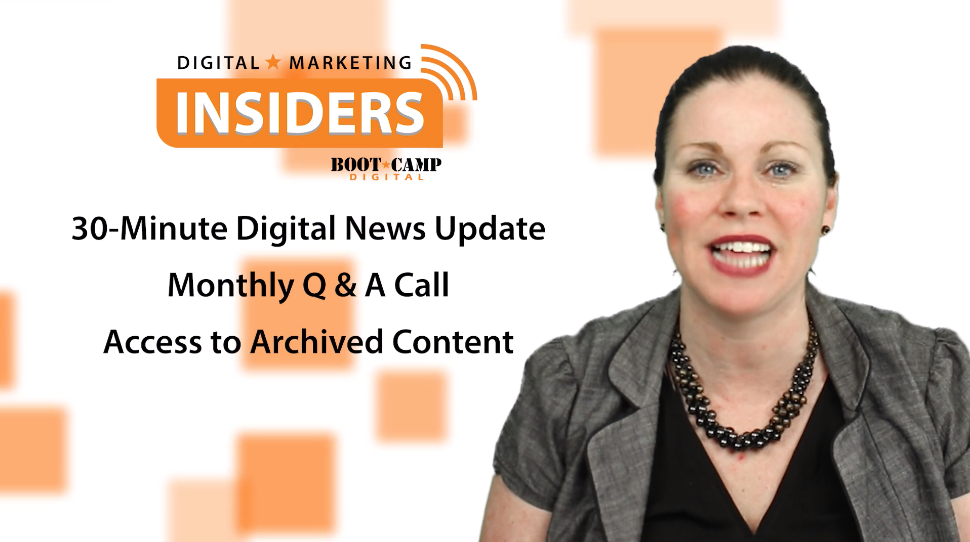
Michael:
A question for both of you, or either, other than Boot Camp Digital, who do you think is doing training right out there, and why?
Who else is doing training well?
Krista:
I can tell you my answer, I don’t know if Allison has a different one. But I think LinkedIn Learning has made tremendous improvements in the last maybe 6 to 12 months. They acquired Lynda.com, which was where I used to go for every random skill, especially hands-on type stuff. I learned WordPress on Lynda.com, gosh, 12 years ago I think.
LinkedIn Learning just took that to a whole new level, and some of their courses are super cool. It’s stuff you’re not going to find anywhere else, and they have experts coming in, they record it in-house. But they have courses on like influence and persuasion techniques, and all these cool subjects. I really like what they’ve done in terms of blowing up that library, and taking what Lynda was doing to like a whole new level.
Allison:
I would second that. I really love what LinkedIn is doing there. The only thing I would have to add, because I really think my answers ride a line with Krista’s here, the only thing I would add though is for that really beginner, kind of, how to use this tool and dig in. Or before you’re ready to dig in, like you’re starting on day one. I love that Google has a lot of really great foundational videos for how to use Google Analytics, and Google Tag Manager, and it’s sort of that initial set up that we need so badly.
One of the challenges with our trainings is when we do a training, things happen so much that we can record something today, and literally Google can decide to change the interface tomorrow, and now my training is no longer valid. So for things like that, I love those types of courses, because it really helps to set people up with that very basic how do I get started, and then we actually build our training courses to build on that. So if you do start there, you’re able to then take it to the next level, and start thinking strategically, and implementing, and things like that.
But I love that Google has put together those really basic like, “It’s my first day, I’m just getting started.” And it’s very easy to go through those, and literally get started the right way. I think that’s the key is getting those foundations down.
Michael:
And it’s great to leave the tool providers to update their training for their specific menu, click here, and here’s a feature, and then to rely on Boot Camp Digital to say, “Here’s a process that’s going to last beyond the tools, and it’s a good practice.”
Allison:
Yep. Absolutely.
Thoughts on industry standards and certification:
Michael:
You just went through an evaluation from OMCP, your courses passed. They definitely are a super set as we expected of the standard. Sometimes a standard is a boring thing, because the OMCP standard really only covers what we consider generally accepted practices that’s considered low dispute. And we leave it to innovators like you, and Boot Camp Digital, to teach beyond that. So, you’ve got through the process, tell us what your thoughts are on having an industry certification standard like OMCP?
Krista:
Yeah, I find this so exciting. I have been in digital marketing for a long time, I was in social media like right in the baby days. One of the things that I found was because it was evolving so quickly, right? Any efforts made to create some industry standards around it were always met with, “Well, no one can be an expert, it changes too fast.” That’s really not the truth of the matter, right? Because there’s foundational things, there’s also, you know, if I think about most digital marketing, a lot of the tactical stuff does change, but the foundational strategies, approaches, basically how this stuff works, that’s pretty long-standing.
And so, what I really like about having an industry standard is that without all the vested interests at play, it’s able to set the stage for here’s this kind of stuff that people in this industry need to know about. And I think it’s great for actually improving the competency and knowledge levels of the entire industry. You see most other professional industries have this kind of stuff, so I think this is really exciting as a way to really level-set, and help the digital marketing industry be taken more seriously.
Allison:
Yeah, I just want to add, going through the process, it was not an easy process to get certified, and I will say I appreciated that because if it was too easy, then there would have been red flags everywhere. The fact that I know that everyone that has been certified had to go through this process, really I know now the credibility that lies there, and I’m really excited about what that does for us, for Boot Camp Digital, and also just for the industry as a whole.
Like Krista was saying, it’s so important to have some standards here, and now that I know the process, I can wholeheartedly say, “Wow, this is a solid list of industry leaders.” Yeah, I think it’s a great process. I love that you guys are doing this.
Michael:
Great. Well we look for you both to continue to contribute to the standard. It is built by all who participate in it. Looking forward, what do you see in the future of digital marketing training?
What is the future of digital marketing training (or not)?
Krista:
Can I tell you about a trend that I don’t like, and then I’ll tell you one that I do like ?
Michael:
[Laughing] Complaining is allowed, as long as it’s balanced.
Krista:
Well, an interesting trend that I’ve seen, right, is micro-learning. Do you know what this is? It’s like all of these one minute videos, and when I saw it, I was super intrigued, and I thought, yeah, it totally makes sense, right? People have short attention spans, you could watch a video on the go. And then I kind of stepped back and looked at what we’re trying to teach people how to do, and the learning objectives. I’m like, “Look, if you have the attention span of a gnat, no, you can’t do this.” These are complex things that are nuanced and build on each other. Micro-learning to me is one of these trends like I’m really interested to see where it goes, but I struggle to see it being a way to provide really meaningful synthesis and analysis of information.
I can see it for these short knowledge exchanges. So if I wanted to get a bunch of definitions out, I could see that maybe working, but when I think of our goal to make smarter, better, marketers, we need more than that. That would be like a trend that, you know, I’m curious to see how it evolves, and how it works in more complex spaces, but it’s something that has definitely intrigued me a little.
One of the things that I definitely like that I’ve seen more and more of with digital marketing is people who do want to get to this mastery level, and that’s a trend that I’m really excited about. I think as more and more people are getting the foundations down, now we see more and more people who want to come in and really get that mastery, and hone their craft. If you look at especially SEO, you have these people who’ve done this for 20 years, tons of deep, deep expertise, and what I think especially actually in programs like OMCP are doing, is it’s getting that knowledge out to more people to help build the depth of knowledge that we broadly have in the marketing community. That’s something that I’m very excited about.
Stats Blitz:
Michael:
We do a section called Stats Blitz. These are the questions that we get asked by folks who are looking for different trainings, and if you can answer them as quickly as accurately as possible, that would be great. You ready?
Allison:
Yeah. Let’s go.
Michael:
Okay, so how many participants in your digital marketing courses over the last three years?
Krista:
In the tens of thousands, if not hundreds of thousands numbers.
Michael:
That’s great. Okay. Do you differentiate between, forgive me if I get this wrong, but I know you have recorded video, do you also do on-ground sessions?
Krista:
Yeah. We run our own live boot camps four times a year. This year we’ve sold them out, so we just added two more to the end of the year. We’ll be in Cincinnati and back in DC this year, as well as Miami and Chicago. And then we do a lot of corporate training where we go into a company, and train their employees.
Michael:
How many graduates? How many people completed the course? Were there reasonable test at the end or certificate of some type?
Krista:
Yeah, all of our live attendees graduate. Unless, I guess, they leave, right? I would say 90% of people who come through our classes are graduating.
Michael:
And then how many hours of training total in your digital marketing programs?
Krista:
We have over 200 hours of training.
Michael:
And then what’s a stat you’d like to share that we didn’t ask?
Krista:
Yeah, so I have two. One is 1,000, which is we have over 1,000 video modules on our site, and we add more all the time. The second one is 200, which is we have over 200 downloadable resources, like quick starts, check lists, tips and trick sheets, templates.
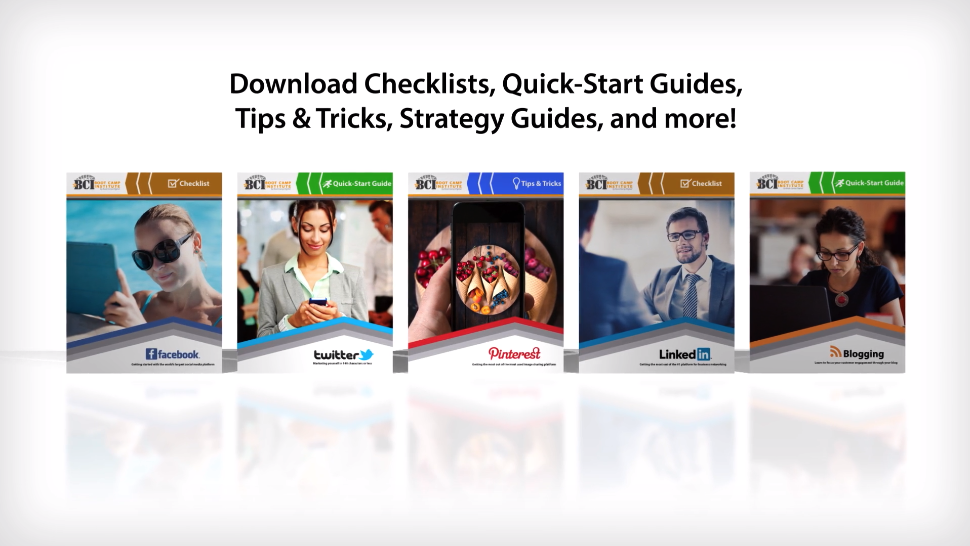
Advice for those studying digital marketing:
Michael:
And I know your learners really love those. Any advice for learners out there who are going to take on digital marketing or increase their skill set?
Allison:
Sure. I would say my best advice, especially for online learning, is to get disciplined. By discipline, the thing is we are so quick to just kind of hit the Buy Now button, and then we move on with our lives. That is the wrong way to approach anything like this. What’s lacking is discipline, and it’s not because we’re not smart, or we don’t know how to do it, or whatever. We’re busy people, so it’s going to be super important no matter what you do, whether you take a live course, or an online course, whatever that is, make sure that you’re being very intentional about setting aside the time to do the training, and implement.
Not just to watch the courses, but also, if you know, “Oh, this is going to take me 30 minutes to watch these videos,” also set some time in there, build some time to try what you just learned. If you’re learning a tool, build in 15 minutes, build in 30 minutes to go play with that tool. That discipline, and setting this time in your calendar, schedule that, block out the time, don’t allow anyone to make appointments with you.
Let everyone on your team, if you have a team let them know how important this is to your organization, because they’re going to care about that. And let them know, “Hey, during this hour, during these two hours,” whatever that is, “Don’t bother me. I’m doing this thing.” And make sure you hold yourself accountable to that too. Put that in your calendar, schedule a date with yourself, and then make it happen. Because otherwise, you’re just going to talk about what a great idea it is, and ideas aren’t going to get you anywhere. You have to actually put the action forth.
Set a schedule, set a date with yourself, and make it happen. Be disciplined. That’s my first bit of advice, and Krista, I know you’ve got some great advice as well, so I’ll let you chime in.
Krista:
Yeah, I think your advice is great, the only thing I would add to it… So, something that we find is training really is a means to an end, right? You’re training because you want to be able to do better, you want to implement something. One of the things that we do at our live trainings is we have these big idea sheets that we give people. The thing is you take all these notes so you know stuff, which is great, but what do you want to do, right?
And so what we have people do is separately write down their big ideas. It’s reserved for things they want to act on, so action items, and people leave with four, five, six pages, and then we try and help them prioritize that stuff. But my advice is also to think about not just what do you want to know, but what do you want to do? How do you turn the knowledge into action, and include that in your learning process. You’re learning the stuff, but then you’re taking the time to apply it to your business, and turn it into action that can bring your results.
Michael:
Folks, note that down, and follow that advice. Last question, where can people sign up for the courses?
Krista:
Yes. BootCampDigital.com.
Michael:
All right. Well that’s the time we have today, a big thank you to Krista Neher and Allison Chaney of Boot Camp Digital. As you heard, you can check out Boot Camp Digital courses at BootCampDigital.com. I’m your host Michael Stebbins, and you’ve been listening to the OMCP Online Marketing Best Practices Podcast, with a special session about digital marketing training.
OMCP maintains the certification standards for the online marketing industry in cooperation with industry leaders just like Krista and Allison. Thank you very much for joining us, and we will see you in the next podcast session.
Audio of Interview:
Podcast: Play in new window | Download
Subscribe: Apple Podcasts | RSS